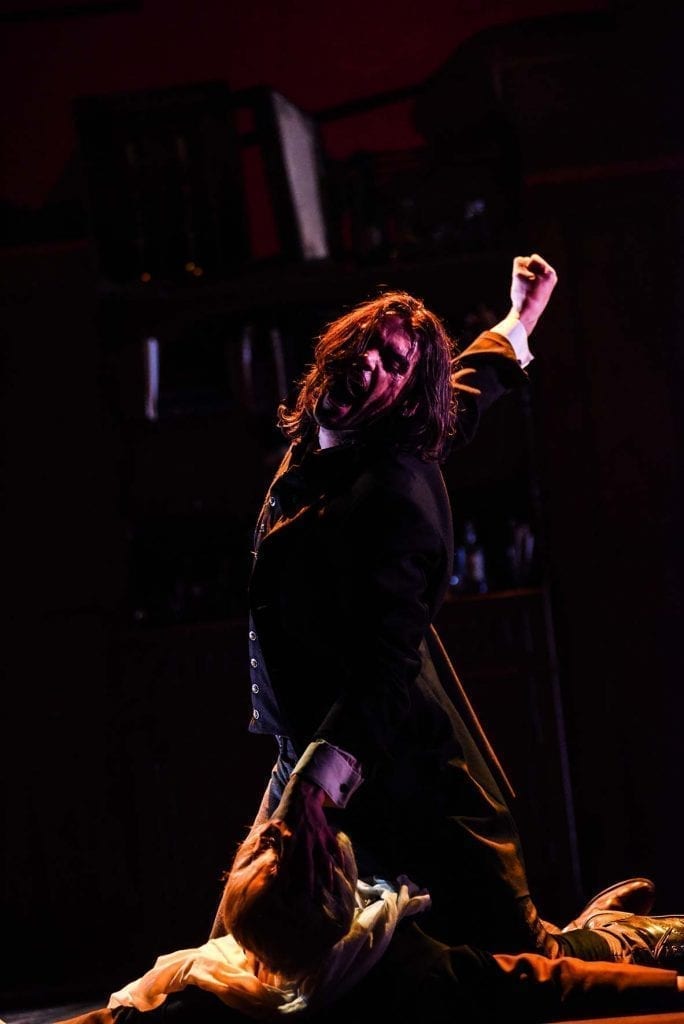This is a play that stays in the mind long after the lights go up. Don’t imagine that this is just another routine gothic horror story – it is a love story as much as a horror story and it raises all sorts of issues about the use and abuse of science, the nature of mental disorder, and the values that drive our society today as much as they did in Victorian England. Nick Lane has conjured up out of Stevenson’s novella both an absorbing drama and a challenging piece of theatre about human nature and fear of ‘otherness’. And though there are only four actors the versatility of all of them means that the world of Jekyll’s London really comes to life.
Henry Jekyll is a doctor doing cutting-edge research into workings of the human brain. When denied access to human experimental subjects he begins to experiment on himself, with increasingly disastrous effects. His friend Hastings Lanyon and Lanyon’s wife Eleanor try to support him but their ill-judged efforts to encourage him but to hold him back from his wilder plans make things worse. Jekyll’s despair at his sense that he is close to a major breakthrough but unable to control the effects of his self-administered potions lead to a bleak ending.
Jack Bannell is a very persuasive Dr Jekyll – and a terrifying Mr Hyde. The transformation is achieved with the simplest means – body posture, tone of voice, and delivery. Simple means perhaps but ones that demand a great deal of an actor and Bannell delivers brilliantly. Ashley Sean-Cook is a sympathetic Lanyon – in the early scenes he seems weak and priggish but as the drama unfolds his concern for medical ethics and his affection for Jekyll make him a much more complex character and Sean-Cook conveys his selfless behaviour towards his unhappy wife in a scene of real pathos. Paige Round plays the Irish songbird with a vulnerable charm but we gradually realise that she is no pushover and has a steely determination to be her own woman – and through the well-played scenes portraying her relationship with Jekyll we come to understand both the promise and the horror of his decisions. Zach Lee plays the lawyer Utterson, and a range of other roles, and his energy is part of the reason why the action zips along.
But it is writer and director Nick Lane who has to take the credit for turning what could have been a melodrama into a serious and thought provoking play. We are asked to think about the Victorians’ simultaneous love of and fear of science – echoes of today! We are asked to think about the nature of evil and whether we all contain impulses for good and for bad – more echoes. We are asked to think about medical ethics and what cost is worth paying for major breakthroughs. We are asked to think about love and desire and what happens when the object of desire is found to have as many bad qualities as good. And none of this is heavy handed – it arises out of a gripping drama.
The play is simply staged with telling lighting effects; it is well-written and it is well-acted. It can be enjoyed as a compelling drama and, though it is set in the 1890s, it can also be enjoyed as a debate about perplexing human issues that are relevant today. A small triumph.

